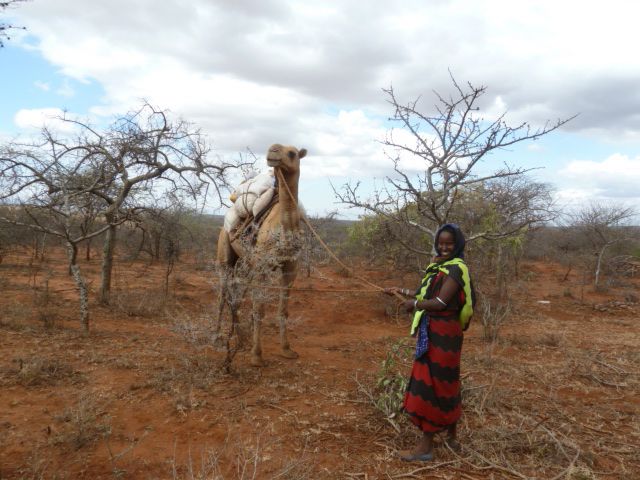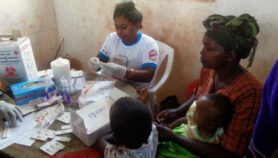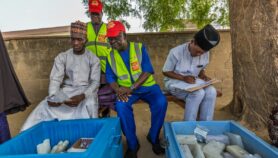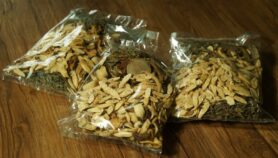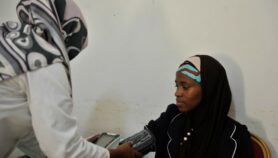By: Abjata Khalif
Send to a friend
The details you provide on this page will not be used to send unsolicited email, and will not be sold to a 3rd party. See privacy policy.
[GARISSA, KENYA] Climate change related impacts ravaging semi-arid northern Kenya has affected traditional family planning methods for thousands of households, traditional healers say.
Prolonged droughts and high temperatures have decimated trees used in producing various family planning herbal concoctions for generations.
Village herbal banks — stores for herbal medicines — are experiencing dwindling stocks and are being scrambled for by thousands of pastoralists from remote villages along the Kenya-Somalia border.
“[Family planning] services here in Dadajibula are over-stretched and our supplies can only last for the next one month.”
Qali Hassan, Dadajibula village, Kenya
During visits to the herbal banks women, traditional healers who also serve as birth attendants, educate women on fertility cycles and various family planning herbal medicines from trees such as Balanites aegyptiacea and Acacia.
“Herbal medicine plays a key role in providing alternative healthcare to people living in rural areas of Kenya and it’s high time the government and other stakeholders appreciated [the] role played by the sector and work on mechanism of mainstreaming it into the modern health system,” says Julius Mwangi, a professor of pharmacognosy at the University of Nairobi, Kenya.
Mwangi urges Kenya to follow the example of Tanzania where complementary and alternative medicine practice has been integrated into the healthcare system.
Qali Hassan, a traditional healer managing a herbal bank in Dadajibula village, told SciDev.Net in an interview last month (23 March) that she had received an estimated 1,000 customers from other villages and towns looking for supplies but she does not have enough due to high demand and low supplies.
“[Family planning] services here in Dadajibula are over-stretched and our supplies can only last for the next one month when we will be forced to shut the ‘bank’ and pray for divine intervention,” says Hassan. “We expected the El-Nino rains to change things so that we get flowers and leaves to produce some concoctions and monthly herbal pills but we only experienced erratic showers and flash floods from the Ethiopian highlands which swept the border villages.”
Hassan adds that the affected customers are now resorting to birth spacing through prolonged breastfeeding and abstinence from regular sexual intercourse.
Halima Adow, a customer from the remote Saretho village in Dadaab area, says she has run out of her herbal family planning concoctions, forcing her to sell her two emaciated goats to buy supplies from the distant Dadajibula herbal banks but supplies might run out soon.
“I have used these traditional methods for 20 years now and they are good. They are made from known trees. What is available in hospitals is not supported by my Islamic religion,” Adow says.
Abajillo Jaldesa, a gynaecologist working in Al-Shiffa Nursing Home, Garissa County, northern Kenya, tells SciDev.Net: “The method is safe and the concoction and medicines are prepared by old people with mastery of indigenous knowledge. It is a local alternative to the conventional family planning method abhorred by locals due to the religious barrier.”
This piece was produced by SciDev.Net’s Sub-Saharan Africa English desk.


